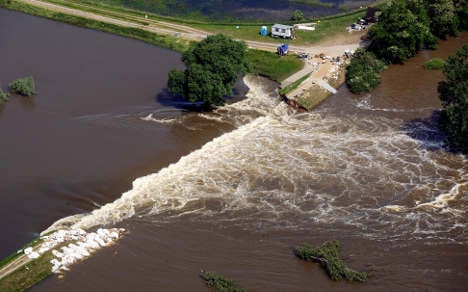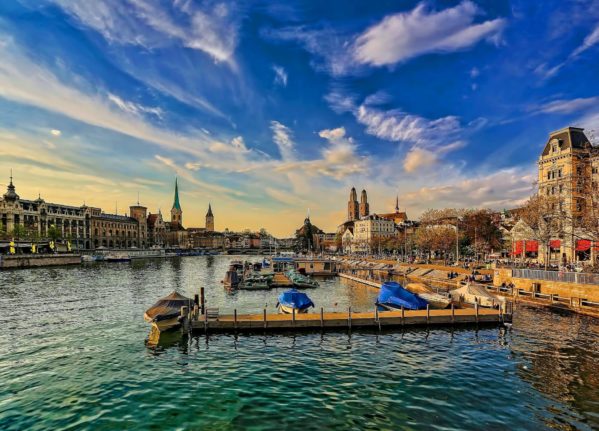All along the Danube, the Elbe, the Mulde and the Spree, water levels keep rising as the great rivers, which normally cleave through the country like lifelines, have suddenly turned into lay-lines of suffering.
As many people’s property sinks below the stinking slime, they take with them the hopes of an idyllic life on, and indeed with, the river. For all the spontaneous help, all the sacrifice volunteers have shown for their neighbours, the 2013 floods have made us all helpless.
Even the phrase “flood of the century,” first all-too-easily uttered along the riverbanks in 2002, does not seem able to do justice to the sheer amount of water seen in the recent floods. So now it’s the “flood of the millennium.” But then all this could reoccur again next year.
Behind the front lines of the sandbags, hurriedly stacked up and then taken down again, life goes on. Once the water has receded and the refuse has been cleared away, certain interest groups will make sure new dams are built.
And isn’t that understandable? The people in Grimma, the old town in Saxony which took millions to rebuild, did not want to have a wall built all the way around it – and now it is back under water.
The residents did not want their front gardens overshadowed by a protective wall and so the general public is expected to pick up the bill when the floods come back next time.
It will be the farmers who pay if our waterways are not given more room – it will be their fields which suddenly serve as replacement floodplains for grassland that has been concreted over.
Once again, like in 2002, politicians are enthusiastically tramping over dykes (Chancellor Angela Merkel still not sporting any wellies) and spouting repetitive warnings about how the rivers need more space.
But after the clear up operation, both local and national politicians lose their momentum in the face of local interest groups. Give the rivers space? All very well, but not in my back yard!
Since the last extreme flooding in 2002 a total of €530 million has been invested in flood prevention – yet most of the money was spent on concrete dams and infrastructure projects. But concrete does not allow water to harmlessly seep away.
Less than a tenth of the money was spent on moving the dykes back to give the river bed more space. In Brandenburg alone, since the river Oder flooded in 1997, the creation of up to 6000 hectares of flood plains has been promised.
But complaints from residents and landowners in the lowlands around the village of Neuzelle have managed to keep the flood prevention measures at bay – if not the flood waters themselves.
So, are the floods an unfortunate accident? Actually no. The water just took the space it needed, destroying many of the livelihoods which after the last flood nobody was willing to insure.
Many people have helped, where and when they could. The crisis centres have so far been doing a good job, despite the fact that even the most modern technology does not seem capable of predicting the relationship between rainfall and the rise in river water levels.
The whole of Germany is again staring transfixed at its flowing lifelines. But in time the gaze will quickly fall back onto the buildings – even if they are built too close to the water. Until the next drama at the dykes, that is.
This commentary was published with the kind permission of Tagesspiegel, where it originally appeared in German. Translation by The Local.





 Please whitelist us to continue reading.
Please whitelist us to continue reading.
Member comments